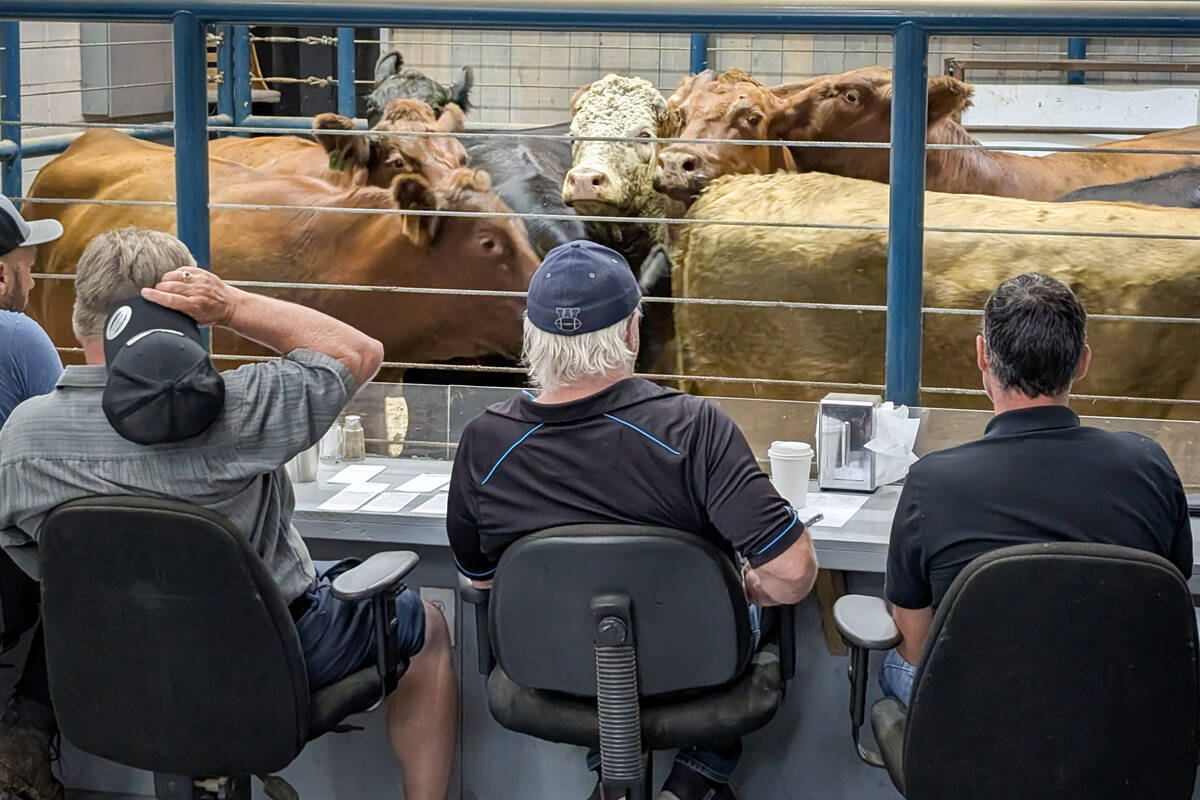Ottawa | Reuters — The Biden administration is requesting that a second dispute settlement panel be formed under the Canada-U.S.-Mexico Agreement (CUSMA) to review a trade dispute with Canada over dairy import quotas, it said on Wednesday.
The U.S. alleges that Canada’s dairy tariff-rate quota allocations deny eligible U.S. applicants, including retailers, access to Canadian markets, undermining the market access that it agreed to provide in CUSMA, which took effect in 2020, according to a statement from U.S. Trade Representative Katherine Tai’s office.
Read Also

Klassen: Weaker fed market weighs on feeder cattle prices
For the week ending November 8, Western Canadian feeder cattle markets traded $10-$20/cwt below values from seven days earlier. Some…
U.S. farmers have complained that Canada’s supply management system favours Canadian processors and hurts their ability to export to their northern neighbour and last year, Washington requested creation of the first dispute panel on dairy quotas after failing to resolve the issue bilaterally with Ottawa.
The first panel released its findings in a 50-page report which said Canada violated a trade accord with the U.S. and Mexico by reserving most of its preferential dairy tariff-rate quotas (TRQs) for Canadian processors.
Canada has since amended its allocation policies for dairy quotas, Trade Minister Mary Ng said Wednesday, adding that Canada had met its obligations under CUSMA to ensure its quota system was compliant.
“Canada will actively participate in CUSMA’s consultation process and stand by our position to administer our TRQs in a manner that supports our dairy supply management system,” Ng said Wednesday.
Ottawa’s new policies “address the sole finding of a CUSMA dispute panel that Canada’s practice of reserving TRQ pools exclusively for the use of dairy processors is inconsistent with the agreement,” she said May 16, when the revised policies were published.
The new policies, she said, “end the use of processor-specific TRQ pools.”
Tai said in a statement that the United States had communicated to Canada that its new policies are not consistent with CUSMA and “prevent U.S. workers, producers, farmers, and exporters from getting the full benefit of the market access that Canada committed to” under the trade deal.
U.S.-based trade group International Dairy Foods Association (IDFA) praised what it described as an “aggressive” action by the Biden administration.
“The U.S. dairy industry has made clear from the start that U.S. dairy exporters demand real TRQ reform that will permit the market access Canada agreed to,” said Michael Dykes, CEO of IDFA.
Two other U.S. groups, the National Milk Producers Federation and U.S. Dairy Export Council, had called last week for Washington to seek retaliatory tariffs, saying Ottawa’s new policies made clear it “refuses to meet its signed treaty obligations” under CUSMA.
The two groups on Wednesday hailed the U.S. government’s latest move but NMPF CEO Jim Mulhern said Tai and the U.S. Department of Agriculture also “must be prepared to deploy the strongest-possible retaliatory measures envisioned under (CUSMA) should this ‘whack-a-mole’ approach continue.”
— Reporting for Reuters by Ismail Shakil and Steve Scherer in Ottawa and Andrea Shalal in Washington. Includes files from Glacier FarmMedia Network staff.














